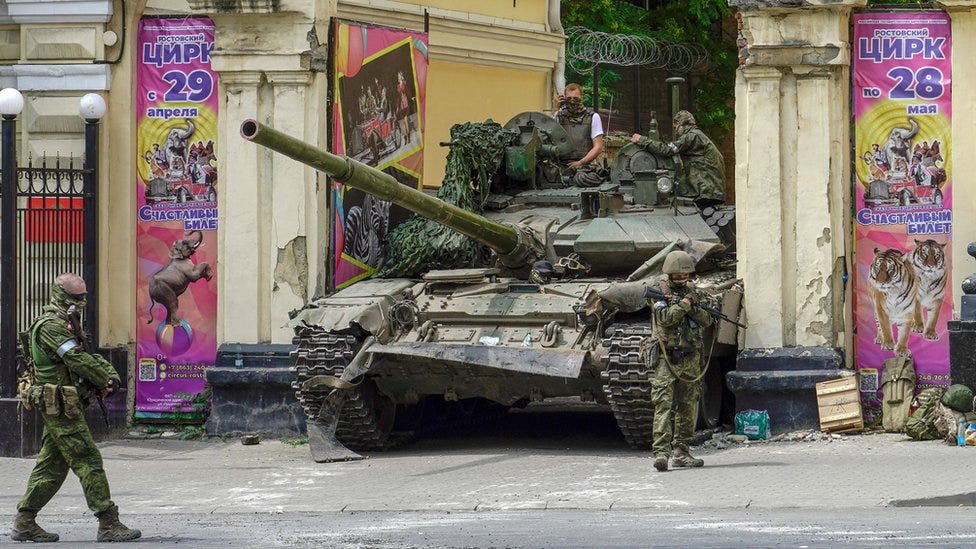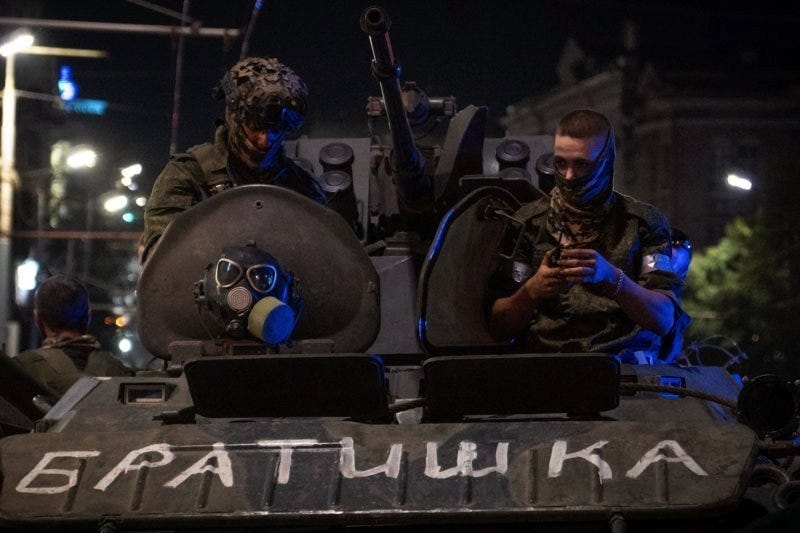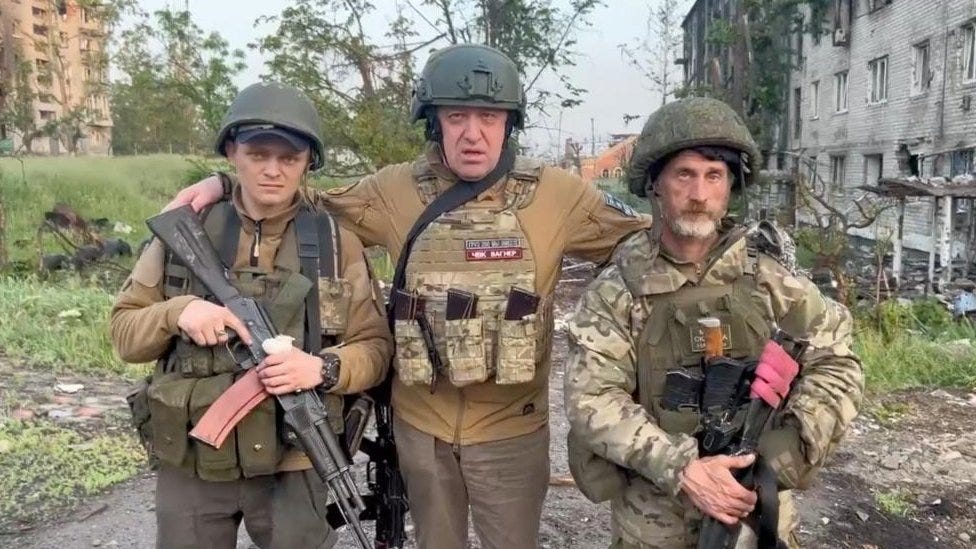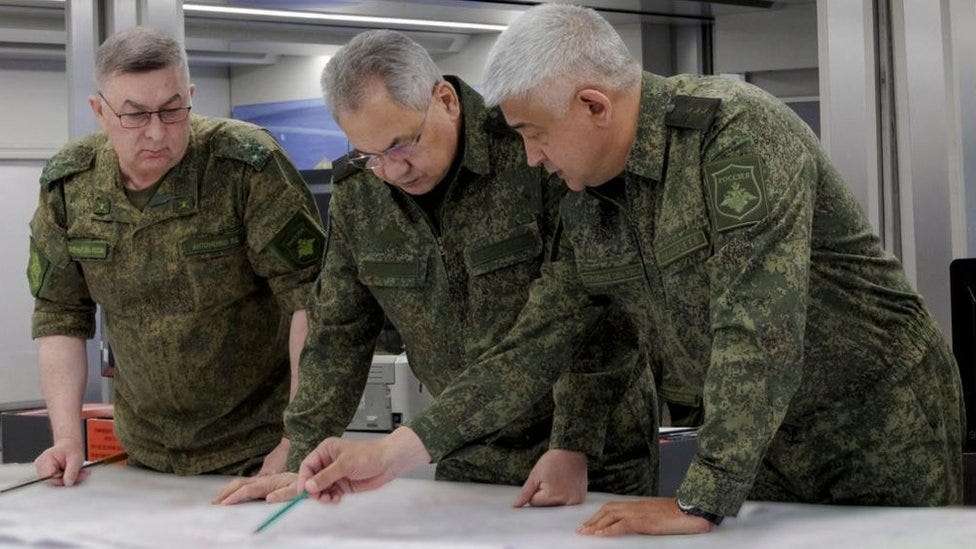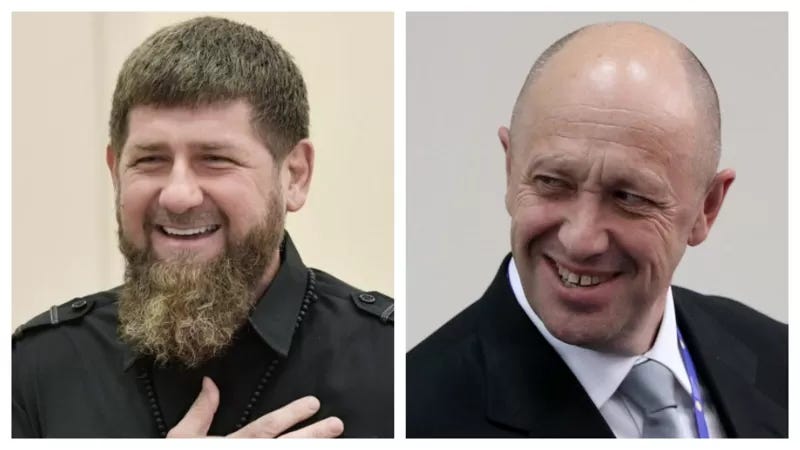What Wagner mutiny means for Putin's Russia
The Wagner mercenary group's mutiny has shown that Putin's system is no longer homogenous. New actors have arrived, displaying more independence and claiming political and economic rights.
By Amalia Zatari & Andrey Goryanov.
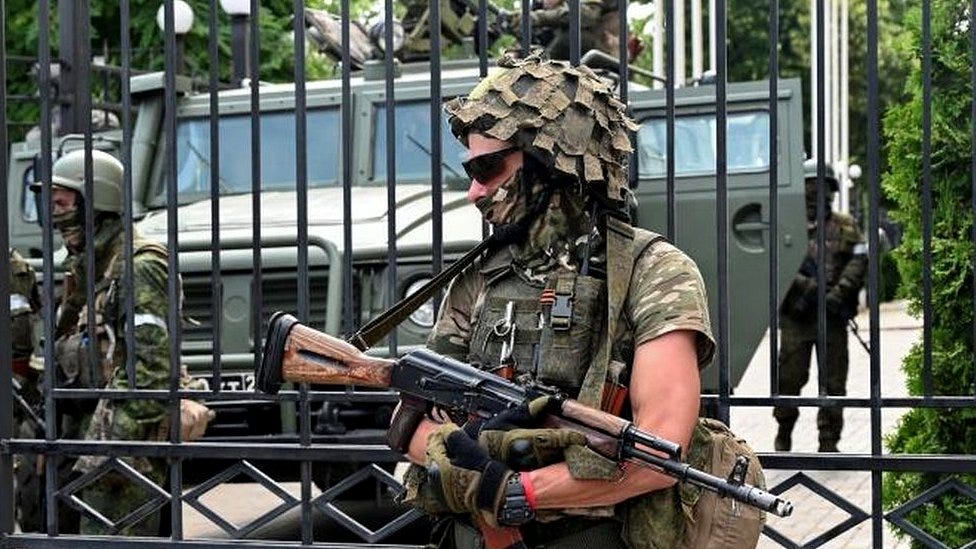
The Wagner mercenary group's mutiny shows to the world that the key players in Russian President Vladimir Putin's autocratic system are no longer unified.
Just days after the first full-scale armed uprising in Putin's Russia, Vladimir Putin is damaged - but so is Wagner mercenary chief Yevgeny Prigozhin.
What happened?
The tension between Yevgeny Prigozhin and the Russian defence minister culminated on Friday and Saturday, when the Wagner head demanded the country's military leadership resign, and ordered his troops to mount a "march of justice" to Moscow.
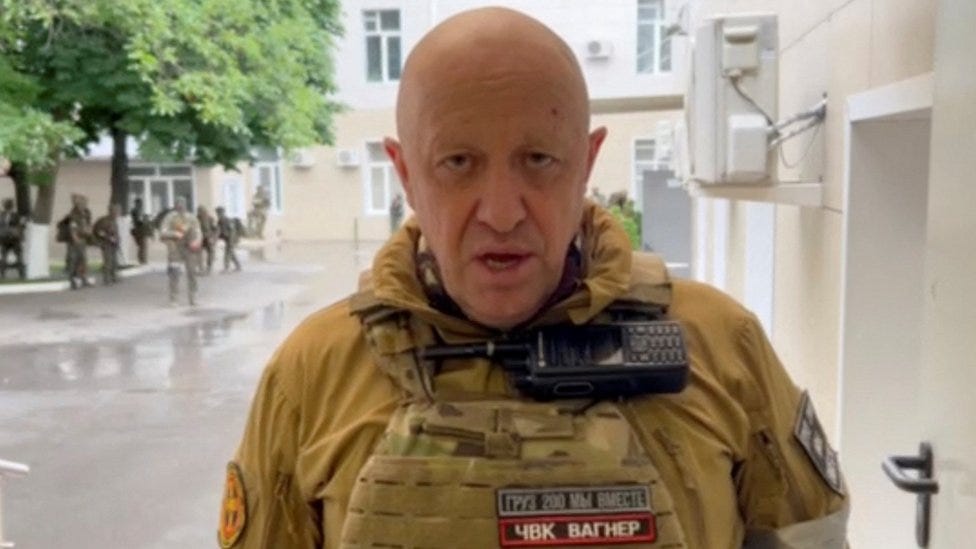
The mutiny ended as suddenly as it began. After the Wagner fighters took Rostov-on-Don, and stormed through several regions on the road to the capital, Prigozhin was called by Belarusian leader Alexander Lukashenko and decided to retreat.
Given the rapid chain of events - and the even more rapid return to the status quo, many people assumed the mutiny had been staged.
Yet, analysts say it was genuine. Political scientist and professor at St Petersburg's European University Vladimir Gelman says: "It's very difficult to stage such events. That would require good direction and acting skills from people who haven't demonstrated them anywhere else."
BBC is blocked in Russia. We’ve attached the story in Russian as a pdf file for readers there.
Support for Prigozhin
Princeton University's Evgeny Roshchin is convinced Prigozhin didn't dream up the mutiny by himself, and was reliant on support from inside the mercenary group. Prigozhin, a businessman with a criminal past, has been able to build a significant private military company whose members have combat experience, Roshchin, a research scholar says.
"It's obvious that some of the most important Wagner units are led by reputable officers," Roshchin says. "And gaining their support is already a big deal for someone in the business and government world. So this isn't just a Prigozhin story. It's about support for him in officer circles."
He adds that some of these officers will have contacts within the Ministry of Defence (MoD), intelligence and other powerful groups, where dissatisfaction against Defence Minister Sergei Shoigu and the condition of the Russian army is concentrated.
According to Gelman, Shoigu's recent decree - that all soldiers fighting under Wagner in Ukraine must sign MoD contracts - may have been the driving force behind Prigozhin's rebellion. This decree met sharp criticism from the mercenary leader, who announced: "None of Wagner's fighters will follow this path of shame - there will be no contracts."
Gelman says: "This would have been unacceptable to Prigozhin. Essentially, he'd lose his autonomy and his dependent forces would fall under MoD control. He'd lose a significant portion of his resources and political influence."
However, if Prigozhin's rebellion was motivated by a desire to protect what he had built, he failed. As the Kremlin announced on Saturday, Wagner fighters who did not participate in the mutiny will sign contracts with the MoD.
'It can't go on like this'
With Prigozhin's mutiny, the discontent brewing in swathes of Russian society reached boiling point, according to Grigory Yudin, a professor at Moscow's Shaninka University.
He says the discontent follows a so-called "special military operation" that could not feasibly continue in its current form.
"There are elements of different political discourse around Prigozhin. There's the radical militaristic discourse: it can't go on like this, we must continue the fighting in a more organised and aggressive way. And then there's the peace-making discourse: it can't go on like this, we should negotiate, especially as it's clear we can barely fight," Yudin explains.
At the same time, Yudin thinks it's too soon to label Prigozhin's behaviour an attempt to end the war. All it shows, he argues, is a growing scepticism in Russian society over the invasion of Ukraine.
"As for Putin, he's kept going for a year and a half, telling everyone the same fairytale. And the general mood is that things can't go on like this. That was what Prigozhin articulated."
Why did the mercenaries marching to Moscow meet so little resistance?
At the beginning of the march to Moscow, Wagner made a near-unimpeded entry into Rostov-on-Don. There, as Prigozhin related, they seized the headquarters of the Southern Group of Forces, and the column made its way through several Russian regions without any significant pushback.
"Of course, this would have been stopped if Russia had an organised, centralised army and that army wasn't away occupying the territory of the neighbouring state," Yudin argues.
What conclusions can we draw?
Gelman, a professor at St Petersburg's European University, believes the weekend's events are evidence of the profound decline of the Russian state.
Russia has outsourced significant resources to one private individual, and kept him afloat for many years, says Gelman. "Usually, [private military companies] are operating far beyond the borders of the state itself, and it's generally assumed that the state has them under control.
"But in today's Russia, Wagner managed to seize control of the state, directly compete with it, and even dictate terms."
It's still unclear what Prigozhin was promised in return for stopping his forces on the road Moscow and sending them to a camp. "Yes, the state found the right terms to stop the mercenary group seizing control. But that's still a red flag in terms of the functioning of the state," Gelman warns.
Who won and who lost?
Everyone lost, maintains Gelman. "Putin showed that he's not been in control for some time... Prigozhin overplayed his hand and was put back in his place."
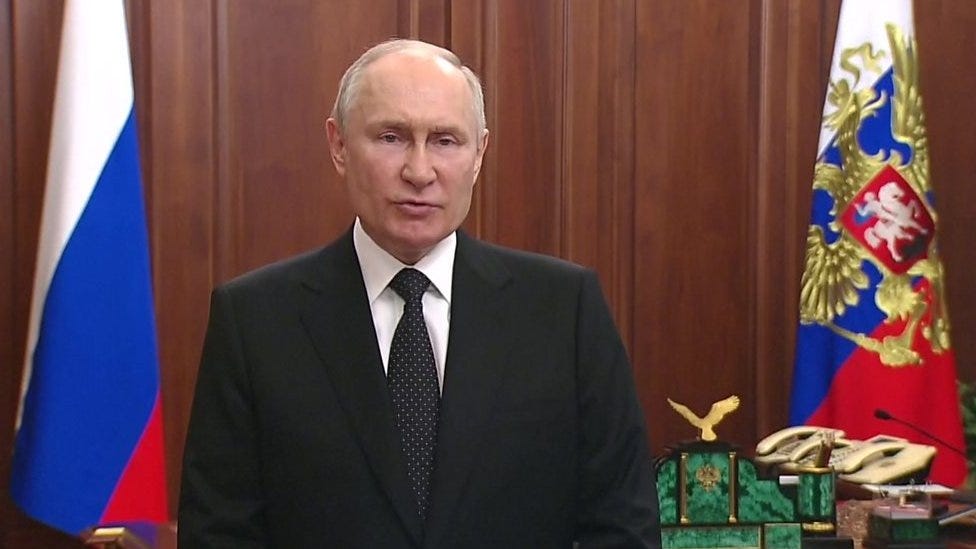
He also notes that Russian military commanders Shoigu and Gerasimov were invisible throughout the showdown. He says this "completely discredits themselves, even to their subordinates."
However, Professor Yudin at Moscow's Shaninka University, says the struggle between Prigozhin and the Russian leadership can't be considered settled.
Political analyst Nikolai Petrov says Putin looks weaker in society's eyes after last the weekend.
Princeton research scholar Yevgeny Roshchin says Prigozhin's mutiny shows a serious split among Russian elites where the army is a significant player though not an independent actor.
"Putin and his administration used to 'feed' all the major players with little conflicts. And then you have someone from the inner circle defying all the unwritten rules, going all-in. And for me, that shows that the split within the elite is deepening. All Prigozhin did was give voice to it."
British security expert Edward Lucas warns that the weakening of Putin could lead to a "time of troubles".
"We may be dealing with a dangerous, unpredictable Russia for at least 10 years. There won't even be the surface level certainty we have with Putin in power."
What Putin said about Wagner (with English subtitles)
Read the full story in Russian here.
Translated by Pippa Crawford.
Edited by Andrew Webb.
Inside Russia’s war machine: why Ramzan Kadyrov and Yevgeny Prigozhin matter
By Ilya Abishev & Kateryna Khinkulova Russia’s advances in Ukraine have effectively stalled. Its military command is under increasing criticism. Two voices are especially vocal - the Chechen leader Ramzan Kadyrov and the founder of Wagner group Yevgeny P…




